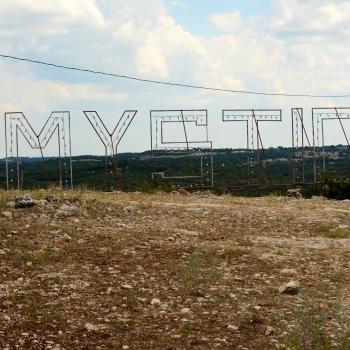A blog post titled "We're Starting a New Presbyterian Church" hardly makes you stop and stare these days. But when the post is by recent moderator of the Presbyterian Church (U.S.A.) Bruce Reyes-Chow, and the proposed new church is an online one, maybe we should pay attention.
As the founding pastor of an emergent Presbyterian church in San Francisco and the first moderator to engage social media successfully in his outreach (especially with his Twitter and Facebook accounts), Reyes-Chow may be an ideal candidate to plant, and grow, a new church online.
We spoke with Bruce recently about his decision to plant a church online, and the central question that's been fueling his days: "Can church be church when it's lived and manifested online?"
The last time I interviewed you nearly two years ago, you were finishing up your term as the Moderator of the PC(USA). What's led you to plant a new church online?
I wish there was a linear progression to all of this! I don't think anyone is surprised I'm doing this. First of all, it's become clear to me, that if this online community thing is to be taken seriously, we should be able to live out our faith with a significant component of that being online. If it isn't, then we've discovered the limitations of online community. I really feel like we need to push the bounds a little bit to think about what church can be, and for me, all of the things that have happened in my life have converged to this place of well, of course it makes sense for me to do this with a significant online component.
The second part is, I miss church. I did leave a congregation, and it was time. But I'm feeling the need to find out where my pastoral voice is going to be. I'm doing lots of speaking and writing, but I've also been fulfilling this pastoral need for a lot of people in an unofficial way through my online presence, so I figured, let's try to gather some people together and do this.
What's been the process of beginning this community, and what's your vision for this new church?
I called together some friends, an initial leadership team of other Presbyterian pastors and teaching elders, and we've been doing some thinking for about two months or so. The initial plan was not to announce anything until after the summer, but as much as we hoped for things to stay under wraps, that just wasn't going to happen. So we wanted to get out in front of it and try to define it a little bit more before people defined it for us.
I really think we can create a church that happens to be online. We're not using the word "virtual" or "cyber." We're even flipping it and calling it "a church online" instead of an online church at this point. We don't want people to assume that the only thing about us is that we're online, when really the thing about us is that we're just a church. And at the end of the day, if we're not able to just be a church, then it's a gimmick. And that's not what church is to be about.
How will your "church online" be different from an "online church"?
We're not going to give into the frenzy that often happens online. There's a speed with which things happen online that doesn't happen face to face. One of our roles as leaders will be to move with a deliberate urgency through everything that we do. Yes, we're going to move faster than a traditional church, but it's not going to be a church of Twitter that moves at lightning speed, or a church of Facebook that only has a certain platform. It's going to be an online expression of church and with that church part we have to be deliberate about bringing voices in and community.
I imagine one of the challenges of being a church online is that you lose some sense of control over your community. Would you call this an "open source" community?
We call it "open and sourced." A lot of folks think open source is a free for all, and that's not what it's like. In open source software there's a designer that is the hub from which all the interaction happens and so there's a role for everybody. That's what we're going to claim. It's not to exclude anybody, but it's to say in this particular manifestation of church online, this is our space and we're going to help mold it and craft it and those who feel connected to that will move with it. And part of the openness is that people are going to throw stuff out there and some of it may be really cool. We're watching everything, but not trying to control.





